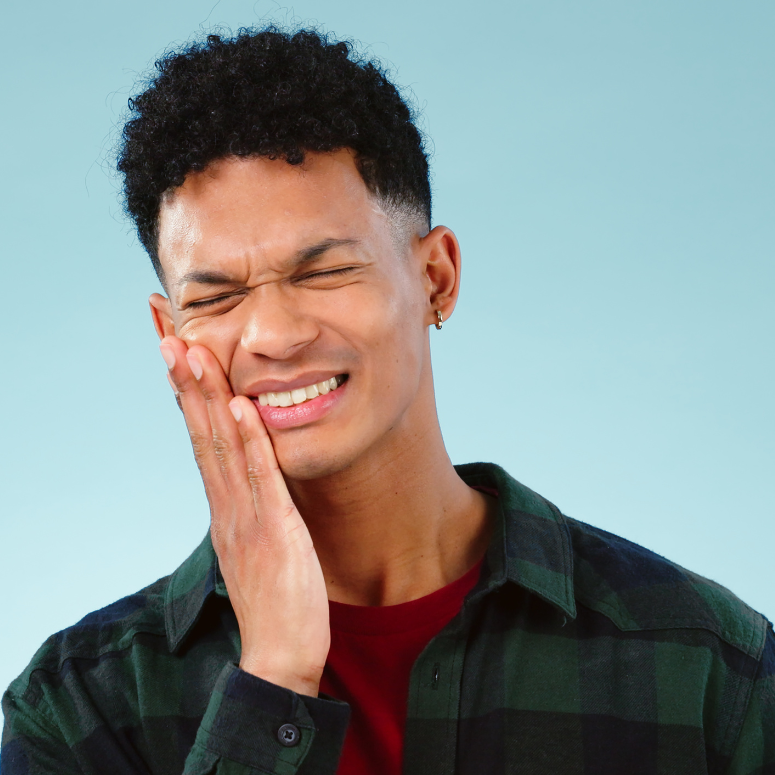What causes TMJ disorders?
You may suffer from TMD due to any of the following reasons:
Trauma; whiplash, any head injury, or blow to the jaw can cause damage to the skull or jaws.
Stress; teeth grinding or clenching is a common side effect of stress and can be a cause of TMD. Even without teeth grinding, some patients still experience TMJ problems due to fatigue.
Oral Habits; nail biting, chewing ice, grinding teeth, thumb-sucking, or resting the chin on the hands can contribute to TMJ disorders.
Intubation; if you were hospitalized and a tube was inserted in your throat, the tube may have applied too much force on your jaw, causing pain and discomfort.
Overworked Jaw; chewing gum too frequently can strain the jaw and cause pain. If you work in an industry or engage in activities where your head and neck is often shaking (e.g. using a jackhammer), you also may experience TMD.
Hypermobility; teens, particularly girls, tend to be hypermobile due to changes in hormones, making the jaws more movable and prone to injury and dislocation.
Arthritis; can affect any joint, including the jaw joint.



